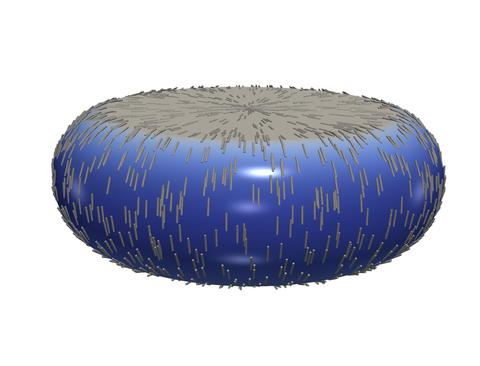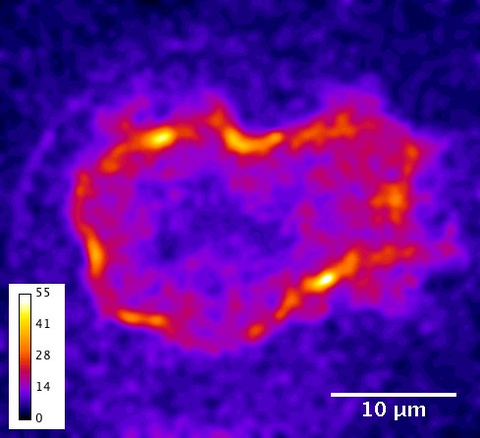Nov 08, 2019
Under pressure – The movement of cells mathematically explored

Simulation of strain generated in an elsatic cortex shell after uniaxial compression
Dr. Elisabeth Fischer-Friedrich from the Cluster of Excellence Physics of Life (PoL) and the Biotechnology Center (BIOTEC) at the TU Dresden and Prof. Sebastian Aland from the University of Applied Sciences Dresden (HTW) receive a three-year research grant of over 400,000 Euros from the German Research Foundation (DFG). The aim is the joint investigation of the "Viscoelastic Dynamics of the Cell Cortex" within a new DFG research group at the TU Dresden: "Vector- and Tensor-Valued Surface PDEs".
The research group is headed by Prof. Axel Voigt and will develop new approaches to solve partial differential equations (PDE) with computers. The focus will be on PDEs which are defined on curved surfaces and which describe vector- and tensor-valued quantities. Such equations can for instance be used to model the shape evolution of cells.
Dr. Elisabeth Fischer-Friedrich says: "The aim of the project is to develop a better understanding of the actin cortex, a cytoskeletal structure within animal cells. In cell division, for example, the actin cortex is responsible for cellular changes in shape. We will investigate which physical mechanisms lead to the formation of chemical patterns in the actin cortex. Deformations of surfaces in the actin cortex that are influenced by viscoelasticity and nonlinear material properties such as stress-stiffening will also be included. In this collaboration, Sebastian and I will synergize our expertise on the mathematics of tensor-valued PDEs and on the physics of the cytoskeleton". Dr. Elisabeth Fischer-Friedrich herself has been working as a group leader at the Biotechnology Center of the TU Dresden since 2017 and performs research in the field of soft matter and biophysics.

Active force generators (myosin) forming patterns in the cortex of a confined dividing cell
